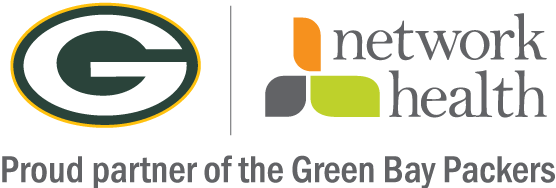Overview
At Network Health, we understand you may have questions and concerns about the coronavirus. Below you will find useful information about the virus as well as tips for staying healthy. You may also visit the U.S. Centers for Disease Control (CDC) website at cdc.gov/coronavirus/2019-ncov/about/symptoms.html to learn more.
The Network Health offices are closed to all guests. We are still available to answer your questions via phone, email and member portal. Information about the coronavirus has been changing rapidly. Follow Network Health on Facebook to see our posts about keeping yourself safe and healthy during this pandemic.
A Letter from Our President and Chief Executive Officer
At Network Health, our mission to create healthy and strong Wisconsin communities is at the center of everything we do. Our president and chief executive officer, Coreen Dicus-Johnson, wrote this letter regarding the coronavirus health crisis.
For Our Provider Partners
Additional information about medications, lab tests and codes can be found here.
General Information About the Coronavirus
The most common symptoms of coronavirus are fever, tiredness, dry cough and difficulty breathing. Some patients may have aches and pains, nasal congestion, runny nose, sore throat or diarrhea. These symptoms are usually mild and begin gradually.
The U.S. Center for Disease Control (CDC) has information about the coronavirus at cdc.gov/coronavirus/2019-ncov/about/symptoms.html. Please contact your provider if you have a fever, cough, difficulty breathing or other symptoms of respiratory illness.
The best way to prevent illness is to avoid being exposed to this virus.
Protect yourself just like you would for any other infectious disease, such as the flu.
The CDC recommends everyday preventive actions to stop the spread of respiratory diseases, including the below.
- Avoid close contact with people who are sick; maintain a distance of at least six feet from people who are coughing or sneezing.
- Wash hands often with soap and water. If soap and water aren't available, use an alcohol-based hand sanitizer
- When washing hands, do so for at least 20 seconds, especially after going to the bathroom; before eating; and after blowing your nose, coughing, or sneezing.
- Cover coughs and sneezes with the bend of an elbow or tissue, then throw the tissue in the trash.
- Clean and disinfect frequently touched objects and surfaces using a regular household cleaning spray or wipe.
- Stay home if feeling unwell.
Cyber criminals are more sophisticated and convincing than ever before. And, unfortunately, many of them are using this public health emergency to take advantage of unsuspecting consumers.
If you take nothing else from the following, remember this - Never disclose personal information over the phone when receiving a call.
From the Centers for Medicare & Medicaid Services (CMS)
- CMS will never ask for personal details.
- Scammers are offering coronavirus tests to Medicare beneficiaries in exchange for personal details via telemarketing calls, social media platforms and door-to-door visits.
- The personal information collected may be used to fraudulently bill health care programs and the unapproved test kits may cause harm to the beneficiaries.
- Report coronavirus complaints to the I-MEDIC using the Investigations MEDIC Complaint Form. The I-MEDIC may also be contacted at 1-877-7SAFERX (1-877-772-3379).
From the Office of Commissioner of Insurance (OCI)
- Watch out for scammers offering fake, low-cost coronavirus or COVID-19 insurance to cover medical treatments.
- Scammers might contact consumers claiming their health insurance has been canceled and then provide a toll-free phone number or a malware link to click in hopes of stealing personal information.
- If you are unsure about an insurance company or agent, do not sign any paperwork or issue payments until you confirm the company or agent offering the insurance product is legitimate and licensed to sell insurance in Wisconsin.
- Consumers can look up agents and companies by visiting the National Association of Insurance Commissioners
- To report suspected scams, fraud or other consumer complaints related to coronavirus, contact the Wisconsin Department of Agriculture, Trade and Consumer Protection (DATCP) Consumer Protection Hotline at DATCPHotline@wisconsin.gov or (800) 422-7128, or file an online complaint.
Regarding Census Fraud
- All Census Bureau website addresses end in “.gov”
- The Census Bureau will not send unsolicited emails to request your participation in the 2020 Census. You won't receive Census Bureau emails unless you have signed up to receive them.
- The Census Bureau will never ask for your information via email
- The Census Bureau will never ask for the following info (via email or otherwise).
-
- Social Security number.
- Bank account or credit card numbers.
- Anything on behalf of a political party.
- Money or donations
- If someone visits your home to collect a response for the 2020 Census, you can do the following to verify their identity.
- Check to make sure that they have a valid ID badge, with their photograph, a U.S. Department of Commerce watermark and an expiration date.
- If you still have questions about their identity, call 844-330-2020 to speak with a Census Bureau rep.
- If you suspect fraud, call 844-330-2020 to speak with a Census Bureau representative.
Programs for Health and Wellness
At Network Health, we care about your well-being and understand your health concerns might be more challenging during this health crisis. We're here to support you and your family.
Our health management team has three unique areas staffed by health coaches, condition managers and care managers who work with you one-on-one to address your individual needs.
To receive over-the-phone support and guidance from one of our health coaches, condition managers or care managers, call 866-709-0019 (TTY 800-947-3529) Monday–Friday, from 8 a.m. to 5 p.m.
You can also find more information by visiting our Member Wellness, Care Management or Condition Management page.
Medical Plan Information About the Coronavirus
During the coronavirus health crisis, you may have questions about what your health plan covers. We have information about coronavirus coverage, telehealth services and updates from our vendor partners (for benefits such as vision and dental, if those are included in your plan).
Medicare Advantage Plan Information
Commercial and Marketplace Plan Information (I get coverage through my employer or buy insurance on my own)
Tips For Staying Well – Keep Your Distance
- In general, maintain at least six feet between yourself and anyone who is coughing, sneezing or exhibiting signs of illness. When someone coughs or sneezes they spray small liquid droplets from their nose or mouth which may contain virus. If you are too close, you can breathe in the droplets, and become exposed to the virus. Other tips you may want to consider minimizing the risk of spread of the virus.
- Perform tasks online where possible (such as banking and grocery shopping).
- Do your grocery shopping less frequently and during non-peak hours. Stock up on essentials and non-perishable goods so that you do not have to return to the store as frequently. Many grocery stores provide disinfectant wipes to clean the cart handle and your hands after touching surfaces others have touched.
- Keep a supply of hand sanitizer or disinfectant wipes in your car to clean hands after performing errands (like pumping gas).
- Avoid being in close proximity to people who are exhibiting symptoms, such as coughing or sneezing.
- Obtain prescriptions and other medical supplies in case you do catch the virus.
- Evaluate meetings for organizations in which you are involved to see if they can be postponed.
April 16 Update - Safer-at-Home Order Extended
On Thursday, April 16, Governor Tony Evers issued an extension to the safer-at-home order that will be in effect from Friday, April 24 at 8 a.m. until Tuesday, May 26. This order loosens some of the restrictions for essential businesses set in place by the previous order.
March 24 Update – Safer-at-Home Order
On Tuesday, March 24, Governor Tony Evers issued a safer-at-home order that requires people to mostly stay at home, except for essential travel like buying groceries, visiting the doctor, picking up medicine or caring for others. The order was issued to contain the spread of the coronavirus within Wisconsin. This order is in effect from Wednesday, March 25 at 8 a.m. until Friday, April 24.
Essential businesses, like health care providers, banks and grocery stores remain open.
March 13, 2020 Update
- On March 12, Governor Tony Evers declared a public health emergency in response to the coronavirus. The governor signed an executive order directing the Department of Health Services to "take all necessary and appropriate measures to prevent and respond" to incidents of the disease.
- The order authorizes the activation of the Wisconsin National Guard as necessary and appropriate. The emergency allows Wisconsin to use state money to support local health departments, including costs related to quarantine and isolation.
- In order to do our part and ensure our highest risk populations stay healthy through social distancing, effective March 13, we are canceling all member events for the next 30 days.
- We encourage our members to contact our customer service department by calling the phone number listed on the back of their member ID card.
- The secure member portal at login.networkhealth.com is another great resources for managing health insurance needs.




